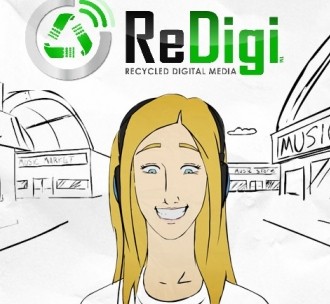Normally when you purchase a physical good like a vehicle, clothing or even computer components, you have every right to resell that item when you no longer have a use for it. If the same laws also apply to creative work (which they do), why then aren't they also applicable with regards to ownership of digital content like music?
That exact question is at the center of a lawsuit pitting Capitol Records against ReDigi, an online service that allows users to sell "used" or "recycled" songs purchased through iTunes at a fraction of the price it originally cost. The service operates using a pretty simple philosophy from chief technology officer Larry Rudolph - "You buy it, and you own it. You should be able to sell it. If you steal it, you shouldn't be able to sell it. It's very simple."
Capitol Records, on the other hand, sees ReDigi as nothing more than a clearinghouse for copyright infringement. "While ReDigi touts its service as the equivalent of a used record store, that analogy is inapplicable: used record stores do not make copies to fill up their shelves," as noted in Capitol's filing.
Naturally, the Recording Industry Association of America (RIAA) agrees with the record label and has even sent the service a cease-and-desist order.
It's a tricky situation no matter how you slice it as both sides have a valid argument. Logic and the law says you should be able to resell something you legally purchased but at the same time, the potential to abuse the system is seemingly overwhelming although ReDigi goes through an exhaustive process to verify ownership and prevent duplicates from being created.
The case is expected to go to trial before a judge in October.
